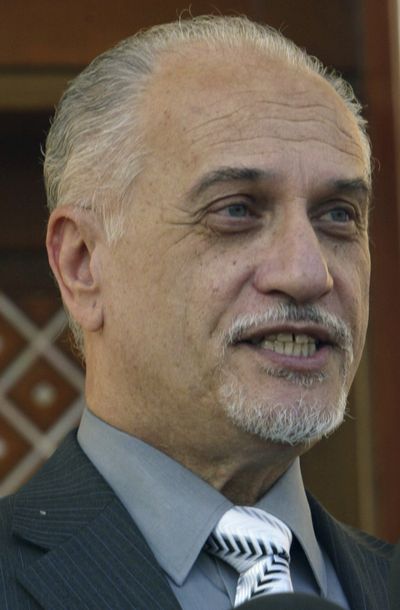Iraq to open oil fields to foreigners
Critics say lawmakers should have had more input

BAGHDAD – Iraq is poised to open its coveted oil fields to foreign companies this week for the first time in nearly four decades, a politically risky move in a country eager to shake off the stigma of occupation.
Iraqi politicians and some veteran oil officials have said the deals are unduly beneficial to oil giants, which are viewed warily by many in this deeply nationalistic but cash-strapped country.
Oil executives have been following the matter with apprehension, industry analysts said, but they are eager to get a foothold in Iraq, which has the world’s second-largest proven crude reserves and is seen as the only major penetrable market.
“It’s something the industry really wants,” said Ben Lando, editor of Iraq Oil Report, an Iraq energy news Web site. “The number of reserves around the world that they have access to is declining. And Iraq has so much oil.”
Iraq’s Oil Ministry is expected to auction eight contracts for six active oil fields and two largely undeveloped gas fields Monday and Tuesday. Thirty-five companies have been selected to submit bids for the 20-year service contracts.
The winners will be required to give the Iraqi government a total of $3 billion in loans. They will be compensated for costs and will earn a per-barrel fee for boosting production at the fields, ravaged by years of war and sanctions.
Companies that secure the contracts will be wading into a country with a latent insurgency, endemic corruption and deeply divided political leaders who have been unable to enact a hydrocarbons law.
The man leading the effort to bring in foreign investors, Oil Minister Hussain Shahristani, has come under attack in recent days by some lawmakers and oil officials, who argue that Iraq should rebuild its crippled oil sector without substantial help from foreign companies.
“There is a majority opinion inside parliament that opposes these bids,” legislator Alia Nusaif said, adding that the Oil Ministry should have given lawmakers more time to examine the terms. “We must think ahead and ensure that our future generations are not left empty-handed because of the ill motives of some.”
Shahristani, who was questioned by lawmakers last week during a sometimes contentious two-day hearing, argued that Iraq cannot afford to rebuild its oil sector without help. The recent drop in oil prices, which has stymied government initiatives and triggered a freeze on the hiring of security forces, has underscored the urgent need for foreign cash and expertise, he said.
“All experts inside and outside the government agree on the need to repair the oil infrastructure and expand exploration development and production,” Shahristani said. “The country depends almost exclusively on its oil reserves.”
Iraq expelled foreign oil companies in 1972 amid a regional movement toward nationalization. Its national oil company performed well until the 1991 Persian Gulf War, which was preceded by sanctions imposed by the United Nations.
Violence and the exodus of scores of technocrats after the U.S.-led invasion in 2003 have taken a toll on the industry. Pipelines in northern and southern Iraq are in dire need of repair, and much of the equipment at functioning oil fields is outdated or underperforming.